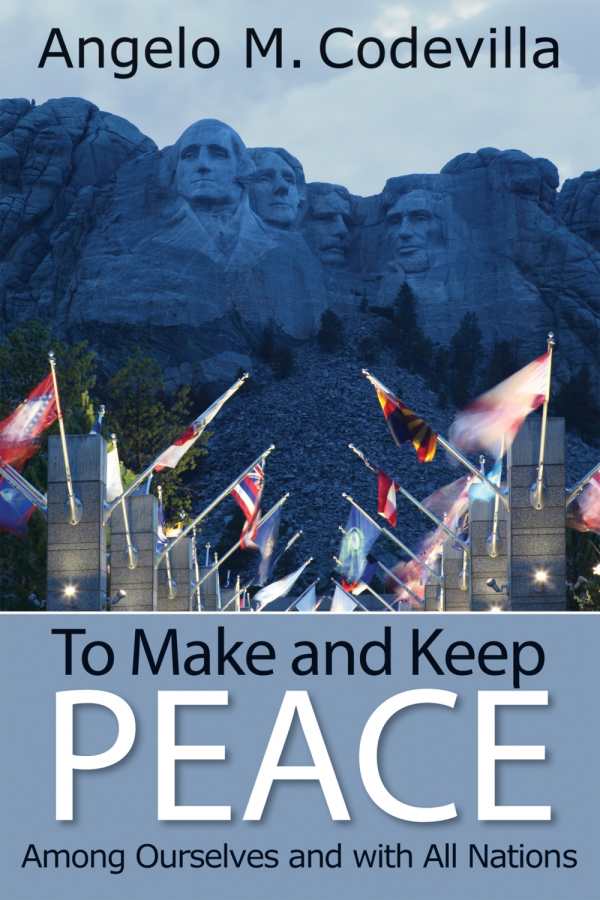To Make and Keep Peace
Among Ourselves and with All Nations
Wisdom from history pairs with knowledge of human nature to equip people with the motivation to incite peace.
To Make and Keep Peace Among Ourselves and with All Nations, by Angelo M. Codevilla, draws from history to project a less warlike future for America. This is a slim volume with a lofty goal—peace—that spans personal conviction and international diplomacy.
Codevilla has studied the American founding generation’s unwavering commitment to peace, and that of the generations that have come since. The book examines how peace has ebbed and flowed in our nation, tracing key historical points and decisions. It is organized chronologically, making it easy to see how the past influences and contrasts with the present. Codevilla helps readers see the course war has trod through our country—and how to stop it.
Codevilla sees peace as a process rather than a condition: deliberate choices can lead from war to peace. He does not advocate full-fledged pacifism; instead, he asserts that war is a viable option only in situations where national peace is threatened.
Codevilla is particularly critical of recent American foreign relations, confronting the notion that “the world is longing for freedom as America understands it.” He is very aware of the American people’s thirst for peace and their dissatisfaction with post-9/11 security. The book quenches rather than capitalizes on that thirst, emboldening rather than manipulating.
The closing chapter cuts a path toward peace for America. Its ideas are founded on the notion that the present way of doing things is unsustainable. Codevilla calls on “a new generation of statesmen” to muster the “intellectual understanding, moral resolve, and political skill” to bring peace. Codevilla doesn’t gloss over dicey situations like that in Syria, summing it up simply: “[W]hat any regime does to its own people with its own resources is its business.” This conclusion is grating to a purely humanitarian mindset, but Codevilla shows that this approach allowed early Americans to achieve peace with other nations.
The title doesn’t quite capture the history-focused bent of the book, so the opportunity to highlight this central, distinctive element of the book is missed there. But within the text, the writing is clear and reveals that it is well researched, making the content credible and sensible, with a balance of both idealism and reality. Codevilla’s expertise in international relations shows in his attention to detail and sound logic. He handles controversial topics calmly and methodically.
To Make and Keep Peace equips peace-hungry people with the motivation from and wisdom of history.
Reviewed by
Melissa Wuske
Disclosure: This article is not an endorsement, but a review. The publisher of this book provided free copies of the book to have their book reviewed by a professional reviewer. No fee was paid by the publisher for this review. Foreword Reviews only recommends books that we love. Foreword Magazine, Inc. is disclosing this in accordance with the Federal Trade Commission’s 16 CFR, Part 255.

